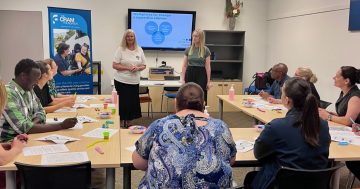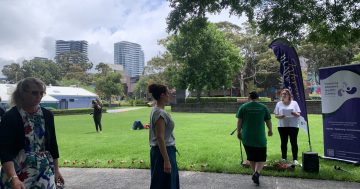
The best way to prevent STIs? Use a condom. Photo: Deon Black, Unsplash.
The number of STIs is on the rise across NSW, with more women than ever contracting gonorrhea – and the Illawarra-Shoalhaven is no exception.
The proportion of gonorrhea cases in Illawarra women (52 per 100,000) is on par with other outer-metro areas, like the Blue Mountains (47 per 100,000) and southwest Sydney (51 per 100,000), but our increase is about the third highest in NSW.
Illawarra Shoalhaven Local Health District (ISLHD) Acting Director, Sexual Health Service, Dr Alison Rutherford said health officials weren’t sure what was driving the spike.
“There were 71 notifications of gonorrhea in 2014, 310 cases in 2019 and 433 cases in 2023,” Dr Rutherford said.
“This is a concerning increase and we are encouraging all sexually active people, particularly those who have multiple sexual partners or unprotected casual sex, to talk to their GP or visit their Sexual Health Service to be tested, even if they are not experiencing symptoms.
“While syphilis and chlamydia notifications have not experienced such a sharp increase, the number of local cases is still concerning, with 45 syphilis notifications and almost 1400 cases of chlamydia recorded in our district last year.”
Among the potential reasons for the increase in the number of STIs overall, and the increase in the number of women with gonorrhea in particular, were a decrease in condom use among men having sex with men – thanks to the ready availability of HIV preventative medicine PrEP (pre-exposure prophylaxis) – and an increase in sexual contact between different communities as different sexual orientations and gender identities become more accepted.
Dr Rutherford emphasised that these are mostly positive changes – as long as people remember to use condoms.
“A recent report from the Kirby Institute suggests condom use among men who have sex with men is going down as PrEP use is going up, and HIV rates are decreasing,” she said.
“We don’t have data as recent on the heterosexual population, but in a 2018 survey of 14-18 year olds about 54 per cent reported using condoms.
“We know rate of partner change and use of protection are two big factors that influence rates of STIs, and it’s really normal for young people to be exploring their sexuality.
“It’s an important and healthy part of life, but unfortunately the more partners you have the more at-risk you are of contracting an STI.”
The highest rates of STIs are among people under 40, with chlamydia more likely to affect people aged 15-29, gonorrhea, people aged 20-34 and syphilis, people aged 20-39.
Fortunately, Dr Rutherford said, with early intervention most STIs are easy to treat, or can be effectively managed, and using condoms makes catching them in the first place far less likely.
However, if left untreated, STIs can lead to significant health risks, including reproductive health issues, miscarriage and stillbirth and other harmful outcomes for pregnant people, neonatal infections, cancer, and increased risk of other infections.
“Regular sexual health check-ups are important because not all STIs have symptoms,” Dr Rutherford said.
“This means that people can have an STI and pass it onto others without knowing.
“Gonorrhea, syphilis and chlamydia can all be passed on from a pregnant mother to her baby, so we’re also keen for people of reproductive age to understand the appropriate STI prevention, testing and treatment measures.
“Getting regular STI checks should be an easy, normal part of life.”
Confidential testing for and treatment of STIs is free of charge through a bulk billing GP, or if eligible you can receive free testing at the local Aboriginal Medical Service or local sexual health clinics in the district.
People diagnosed with an STI should let their sexual partner(s) know they may have been exposed and provide information on how to get tested.
Online notification websites such as “Let Them Know” (for everyone), “The Drama Downunder” (for gay, bisexual and queer men); and “Better to Know” (for Aboriginal and Torres Strait Islander people) provide advice and assist with informing partners via anonymous SMS messages.

















